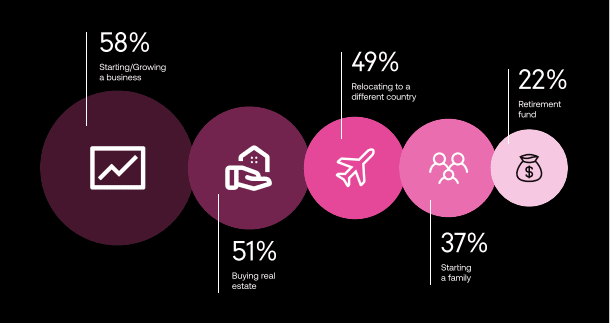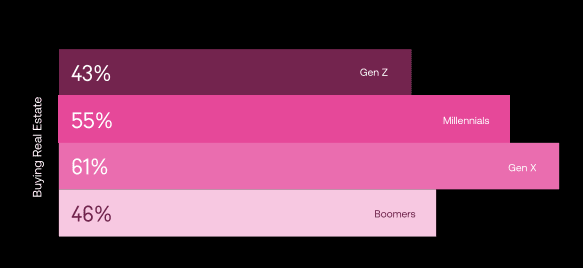39% of Nigerians List Housing and Rent as Their Highest Expense According to the 2023 PiggyVest Savings Report
Bisi Adedun . 5 months ago
housing
personal finance
PiggyVest
real estate
savings

Share this post
Subscribe to our newsletter
Nigerian fintech and savings company, PiggyVest recently released their inaugural Savings Report, which shared insights from input taken from thousands of Nigerians. The report's aim was to understand the financial status of Nigerians from a sample group and their personal finance management habits. The detailed report covered several themes relating to personal finance and…
Nigerian fintech and savings company, PiggyVest recently released their inaugural Savings Report, which shared insights from input taken from thousands of Nigerians. The report’s aim was to understand the financial status of Nigerians from a sample group and their personal finance management habits.
The detailed report covered several themes relating to personal finance and savings, including their approach to housing and real estate. Here are the key real estate focused takeaways from the report:
-
Rent & Housing is listed as a top six expense for respondents of the study
According to the report, 39% of Nigerian respondents listed housing and rent among their top six expenses, coming behind food and groceries (87%), utility bills (58%), and transportation (48%).
In addition, among the 79% of respondents that are inclined to saving (64% save a portion of monthly income while 15% save occasionally), the bulk of them listed rent/housing as the top item to which they’re saving towards.

The PiggyVest Savings Report. Source: PiggyVest
This is in keeping with the state of housing in the country – particularly Lagos which is mostly unaffordable in areas closer to the city center. In a previous note, we highlighted how rent is paid in different countries and compared them on a scale of flexible to rigid. Nigeria is listed amongst the rigid countries as renters are required to pay upfront payment of up to a year to acquire a space.
-
Over half of the respondents are saving towards buying real estate.
In terms of future goals and milestones, 51% of the respondents (second highest) are saving towards buying real estate. These respondents – mostly between 43 and 58 years – listed buying real estate as their major financial priority in five years. Which was attributed to individuals in the Gen X generation being in their peak earning years with children.

The PiggyVest Savings Report. Source: PiggyVest
According to a study conducted by NOI Polls in 2016, 51% of Nigerians live in rented accommodation with only 31% living in their personal house. As such, it’s unsurprising that a high percentage of respondents, particularly within the Gen X age range of the PiggyVest survey, are saving towards buying real estate, thus further emphasizing the low adoption of mortgage financing.

The PiggyVest Savings Report. Source: PiggyVest
The savings report highlights the known problems in Nigeria’s real estate market
The report was useful in understanding different generations’ approach to savings and personal finance. Furthermore, it was also interesting to see multiple generations saving towards buying real estate – from young to mature professionals/retirees. Several deductions can be made from the insights including the importance of affordable housing and flexible rent and mortgage solutions.
Estate Intel loves your feedback! Let the Insights team know what you think about the Real Estate Highlight from the PiggyVest Savings Report, by emailing [email protected].
Subscribe to ei Pro to access affordable real estate data such as; sales rates, yields, supply drivers, and information on key real estate market participants who are active in the market.
Related News
You will find these interesting

Bisi Adedun . November 2023
Africa Investment Forum
AIF

Bisi Adedun . October 2023
Century city
New City

Linah Amondi . June 2023
gdp
real estate